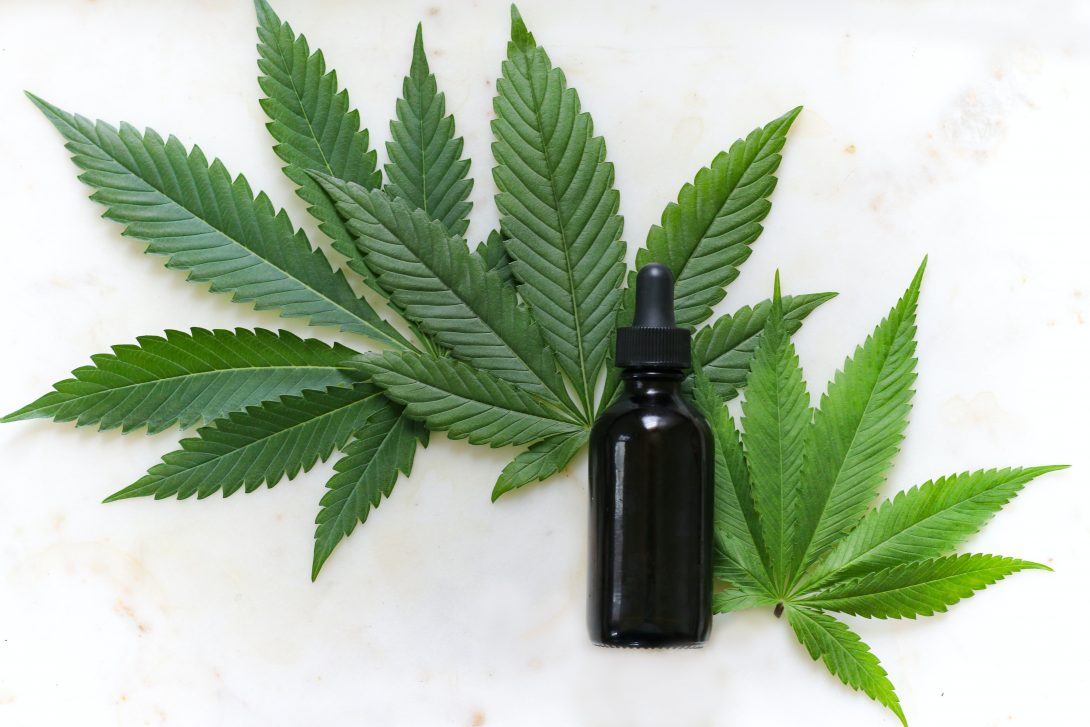No products in the cart.
CBD and Cancer- All You Need to Know
Cancer has long been a devastating diagnosis for those affected by it. But now, with the rise of CBD and its potential therapeutic benefits, cancer patients may have a glimmer of hope. In this blog post, we will explore the potential therapeutic benefits of CBD for cancer patients, from pain relief to anxiety management.
Understanding CBD and Its Therapeutic Benefits for Cancer Patients

CBD is being studied as a complementary treatment for cancer, with research showing it may help reduce some of the symptoms associated with chemotherapy and radiation. CBD has been proven helpful with cancer management, relieving pain, loss of appetite, weight loss, and other side effects associated with chemotherapy and radiation. CBD for cancer is considered a complementary treatment that can be used in conjunction with traditional chemotherapy and radiation treatments. Cannabinoids may reduce nausea and neuropathic pain, according to research. Cancer and cancer treatments have been demonstrated to enhance low appetite, although CBD can reduce it. Additionally, the anti-inflammatory and anti-anxiety effects of CBD are believed to exist.
CBD has been shown to help reduce nausea and vomiting, improve sleep, reduce inflammation and improve patients’ overall quality of life. You must speak to your doctor before adding CBD as a complementary treatment for cancer in your care plan. CBD can be an effective treatment for cancer patients seeking relief from symptoms associated with traditional treatments.
CBD may also help relieve side effects such as loss of appetite, weight loss, and nausea associated with cancer treatments. As a complementary treatment for cancer, CBD has been proven to be helpful with managing symptoms associated with chemotherapy, radiation and other treatments. While research is still in its infancy, the potential of CBD for cancer as a complementary treatment is undeniable. In addition to relieving side effects caused by cancer treatments, CBD may help facilitate an overall sense of well-being and quality of life.
By understanding the therapeutic benefits of CBD and cancer patients, healthcare providers can better guide their patients in utilising this potentially beneficial complementary treatment. All in all, CBD for Cancer as a complementary treatment can be a viable option when dealing with Cancer, as it has been proven to be helpful with Cancer patients in regards to reducing symptoms such as loss of appetite and weight loss. Additionally, when paired with traditional Cancer treatments such as chemotherapy and radiation, CBD as a complementary treatment may help Cancer patients find relief from the side effects of these treatments. Healthcare providers should consider the therapeutic benefits of CBD for Cancer patients when discussing potential treatment plans.
How Can CBD Help to Manage Symptoms of Cancer?
Ongoing research is being done to understand how CBD can help alleviate cancer symptoms. Unlike typical forms of treatment, such as chemotherapy and radiation, CBD has few side effects, making it an incredibly safe and effective way to treat cancer patients. When combined with traditional forms of treatment, CBD can have a greater effect on the overall outcome.
It can also help to reduce nausea; a common symptom experienced during chemotherapy and radiation when CBD for cancer is used as a complementary treatment. Proven to be helpful with cancer, CBD is emerging as a potential complementary treatment, improving the potential efficacy of chemotherapy and radiation. In addition to reducing nausea, CBD is purported to assist with losing appetite and weight loss often experienced by cancer patients receiving chemotherapy and radiation treatments. With the increasing number of evidence-based studies showing the potential benefits of incorporating CBD and cancer as a complementary treatment, it has become an essential consideration for many oncology patients. The effects of marijuana on pancreatic cancer development, invasion, and tumor cell death were examined in a 2019 review of in vitro and in vivo investigations. The efficiency of various formulations, dosage, and exact modes of action are all areas where research is missing and urgently needed, according to the study’s authors.
CBD can also be used as a complementary treatment for cancer, providing pain relief and helping to improve sleep quality. A 2019 research found that CBD had no effect on healthy cells, but might cause cell death and increase radiation sensitivity in glioblastoma cells.
Cannabis use may be negatively correlated with the incidence of bladder cancer, according to a large, lengthy study of males in the California Men’s Health Study cohort. A cause-and-effect connection hasn’t been demonstrated, though.
CBD has been proven helpful with cancer treatment, providing further support for those in need. According to a 2014 study using in vivo colon cancer experimental models, CBD may prevent colorectal cancer cells from migrating.
The Connection Between CBD, Loss of Appetite, and Weight Loss

CBD oil has been proven helpful in managing symptoms associated with chemotherapy, radiation, and other cancer treatments, such as loss of appetite and weight loss. In recent years, CBD and cancer as a complementary treatment has grown in popularity due to reports of it being able to give cancer patients relief from the side effects of their treatments. Although research is still in its early stages, studies have found that CBD may be an effective complementary treatment for cancer, helping to reduce inflammation and improve mood. It is also thought to help with pain and nausea, which can be common side effects of chemotherapy and radiation.
As such, CBD for cancer has become increasingly popular amongst medical professionals to provide relief to those battling the disease and its treatments. Cannabinoids are potential drugs for treating gliomas, according to a 2014 assessment of 35 in vitro and in vivo research. 2010 studies showed that CBD was effective in preclinical models of metastatic breast cancer. The research revealed that CBD dramatically decreased breast cancer cell invasion and proliferation.
It can be used as a treatment for these symptoms in addition to traditional treatments.CBD has been proven helpful with cancer, relieving symptoms like loss of appetite and weight loss. Studies have shown that CBD can help reduce side effects of cancer treatments, making it a great option for those looking for relief from their symptoms.
Dosage Recommendations for Using CBD in Combination With Cancer Treatments

It is recommended to start with a low dose of CBD as a complementary treatment for cancer, as it will help minimise any potential side effects. CBD, or Cannabidiol, has been found to be a helpful treatment for cancer patients. CBD can also help address issues such as lack of appetite and weight loss associated with chemotherapy and radiation treatments. Recent studies have suggested that CBD for Cancer may be a complementary treatment option as it has been proven to be helpful with Cancer.
Research indicates that taking between 20-40 mg of CBD per day can be beneficial in managing symptoms associated with cancer treatments.
Evaluating the Proven Results: Is CBD an Effective Treatment for Cancer?

CBD is one of the most controversial topics in healthcare today. Some people claim it has helped them with various medical conditions, while others are not so sure. One of the most common questions people ask is whether or not CBD can help treat cancer.
The answer to this question is still not clear. There is some evidence that CBD may help manage certain types of cancer, but more research is needed to confirm these results.
A lot of the confusion around CBD and cancer comes from the fact that cannabis has been used to treat cancer for centuries. Cannabis contains hundreds of different compounds, including CBD and THC. THC is the compound that causes the “high” feeling associated with marijuana use.
CBD does not cause this feeling. In fact, CBD may actually counteract some of the effects of THC.
There have been a few studies on using CBD for cancer treatment. One study found that CBD may help shrink certain brain tumors. Another study found that CBD may help prevent breast cancer cell spread.
The National Cancer Institute (NCI) notes that CBD may help ease cancer symptoms and cancer treatment side effects. However, the NCI doesn’t fully endorse any form of cannabis as a cancer treatment. The organisation says that more research is needed to understand the potential role of CBD in cancer treatment.
A small 2020 study looked at the use of CBD in rats with colon cancer. The study found that CBD may help reduce the growth of tumours. However, this research is very preliminary, and more studies are needed to confirm these results.
Another small study from 2019 looked at the use of CBD in people with advanced cancer. The participants were given a high dose of CBD daily for 7 days. The study found that CBD may help reduce pain and Improve quality of life in people with cancer.
CBD has shown to effectively reduce various forms of cancer-related pain, including neuropathic pain, pain associated with chemotherapy, and pain caused by cancer metastasis. CBD is thought to work by reducing inflammation and cell death and modulating the activity of the body’s pain-regulating systems.
CBD is a promising option for treating cancer-related pain, and further research is warranted. However, due to the lack of long-term data on CBD’s safety and efficacy and the potential for drug interactions, CBD should be used with caution and under the supervision of a healthcare professional.
Side effects of CBD and Cancer
One of the main side effects of CBD oil is its effect on your sleep. CBD oil can cause drowsiness and make it difficult to stay awake. Some people may experience this more than others. If you find that your side effects of CBD oil make it difficult to stay awake or concentrate during the day, it might be best to take your CBD oil at night before you go to sleep.
Another common side effect of CBD oil is dry mouth. This is because CBD oil can reduce the production of saliva. To combat this, drink plenty of water or chew gum throughout the day. You can also look for CBD oil products that contain natural ingredients like peppermint oil or spearmint oil, which can help to alleviate dry mouth.
In addition, CBD oil may interact with certain medications, so it’s important to talk to your doctor before taking it.
CBD oil is generally considered safe, but it can cause some people adverse reactions like diarrhea and fatigue. It’s also important to note that the long-term effects of CBD oil are not yet known.
How to choose CBD products specifically for Cancer aid
medicinal cannabis, also known as medical marijuana, is cannabis and cannabinoids prescribed by physicians for their patients. Cannabinoids are active chemicals in marijuana similar to chemicals the body makes that are important for appetite, memory, movement, and pain. The marijuana plant has at least 100 cannabinoids. The two best studied is delta-9-tetrahydrocannabinol (THC) and cannabidiol (CBD). THC is the chemical that makes people “high.” CBD does not make people high.
CBD oil is made from the flowers, leaves, and stalks of the hemp plant. It has carrier oil, such as olive oil, coconut oil, or hemp seed oil. CBD products also come in capsules, gummies, topical creams, and even products for pets.
CBD is thought to help with cancer by reducing symptoms and side effects. THC is thought to help with cancer by killing cancer cells and shrinking tumors. There is limited evidence to support these claims.
CBD is known to interact with some medications. It is important to talk to your doctor before taking CBD, especially if you are taking medication for cancer. Some cancer medications are metabolized by the liver and could have negative interactions with CBD. CBD can also affect how other medications work.
When choosing a CBD product, it is important to look for a product that is third-party tested and created with pharmaceutical-grade CBD. The FDA does not regulate CBD products, so it is important to choose a reputable brand.
CBD oil has been shown to be effective in treating cancer by reducing tumor growth, inhibiting cancer cell proliferation, and inducing cancer cell death. In addition, CBD oil can also help to reduce the side effects of cancer treatment, such as nausea, vomiting, and pain. CBD is generally considered safe, but it can cause adverse reactions like diarrhea and fatigue in some people. It’s also important to note that the long-term effects of CBD oil have yet to be discovered.
Facts about CBD and Cancer

- CBD is a cannabinoid found in the cannabis plant. Cannabinoids are chemicals that can affect the body, including relieving pain and reducing inflammation.
- CBD is thought to have anti-cancer properties, as it may help to kill cancer cells or stop them from growing. CBD is also thought to help reduce the side effects of cancer treatment, such as nausea and vomiting. However, human studies have no evidence to support these claims. Most research on CBD and cancer has been done in animal studies.
- CBD may also interact with other cancer treatments. For example, it may reduce the effectiveness of chemotherapy drugs. Therefore, you must talk to your doctor before taking CBD if you’re undergoing cancer treatment.
- THC is another cannabinoid found in the cannabis plant. Unlike CBD, THC is psychoactive, which means it can make you feel high.
- Some research suggests that THC may also have anti-cancer properties.
- CBD and THC are sometimes used together to treat cancer. This is because they may work better together than when used alone.
- CBD oil is available to purchase online and in some health food stores. However, it’s important to note that the quality of CBD oil can vary significantly between brands. It’s also important to talk to your doctor before taking CBD oil, as it may interact with other medications.
FAQs on CBD and Cancer
Cannabis has been used medicinally for millennia, but it has only recently gained widespread attention as a possible treatment for cancer. CBD, or cannabidiol, is a compound found in cannabis that has been shown to have anti-cancer properties.
CBD is similar to THC, or tetrahydrocannabinol, the psychoactive compound in cannabis that gets users high. However, CBD does not produce any psychoactive effects.
CBD is thought to work by interfering with the ability of cancer cells to grow and spread. CBD may also help reduce cancer treatment’s side effects, such as nausea and pain.
There is still much research on using CBD for cancer, but the results are promising. If you consider using CBD to treat your cancer, you should know a few things.
- Can CBD be used to treat all types of cancer?
CBD has been shown to be effective in treating various types of cancer, including breast, lung, colon, and skin cancer. However, more research is needed to determine whether CBD is effective against other types of cancer.
- Does CBD cure cancer?
There is no evidence that CBD can cure cancer. However, CBD may help to reduce the growth and spread of cancer cells.
- Is CBD safe to use?
CBD is generally considered to be safe. However, some people may experience side effects, such as fatigue, diarrhea, and changes in appetite. It is important to talk to your doctor before using CBD, especially if you are taking other medications.
- Will I get high from using CBD?
No. CBD will not make you high. THC is the compound in cannabis that produces psychoactive effects.
- Where can I buy CBD?
CBD is available in various forms, including oils, tinctures, capsules, and edibles. You can purchase CBD online or from a dispensary in states where cannabis is legal.
CBD is a compound found in cannabis plants that has shown promise in treating various types of cancer. CBD is similar to THC, but does not produce any psychoactive effects. CBD is thought to work by interfering with the ability of cancer cells to grow and spread. CBD is generally considered to be safe, but some people may experience side effects. You can purchase CBD online or from a dispensary in states where cannabis is legal.
To Conclude
In conclusion, although the research on CBD’s therapeutic benefits for cancer patients is still in its early stages, there is reason to believe that this compound may provide a glimmer of hope to those affected by cancer. CBD may offer a range of advantages to cancer patients, from pain relief and nausea reduction to potential anti-tumor properties. Of course, more research is needed to explore CBD’s therapeutic effects fully, but the evidence is encouraging.





Leave a Reply